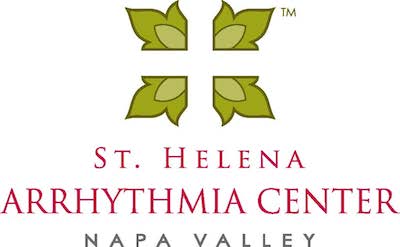St. Helena Arrhythmia Center
This page provides information about a featured electrophysiologist, cardiologist, cardiothoracic surgeon, hospital, heart hospital, arrhythmia center, or atrial fibrillation center.
On this page you will find an overview of this atrial fibrillation patient services provider's atrial fibrillation treatments and background, as well as information about this provider's specialized afib procedures, such as catheter ablation, maze surgery, or the mini maze procedure, and the provider's treatment results, when available. There are also reviews by other afib patients, when available.
Provide a Patient Review List Your Services with Us

6 Woodland Road, Suite 304
St. Helena, California 94574
United States
Phone: 707-363-3589
About
The Adventist Heart Institute is a multispecialty group made up of cardiologists, electrophysiologists and heart and vascular surgeons who are united by a passion to treat patients with heart, vascular and thoracic conditions. Visit us at www.AdventistHeart.org.
The St. Helena Arrhythmia Center is a founding member of the National Alliance of Integrated Afib Centers.
Physicians
- Gan Dunnington, MD, Surgeon
- Peter Chang-Sing, MD, EP
- Bing Liem, MD, EP
Studies
Dr. Dunnington is the principle investigator in The Stroke Feasibility Study at St. Helena:
The Stroke Feasibility Study, launched by AtriCure, will assess the safety and effectiveness of the AtriClip Left Atrial Appendage Exclusion System in reducing strokes in afib patients who are unable to take anticoagulants.
The AtriClip is applied to the left atrial appendage of the heart during a minimally invasive surgical procedure. The left atrial appendage is the source of more than 90 percent of afib-related blood clots. The Stroke Feasibility Study will determine the effectiveness of the AtriClip in reducing strokes in patients with non-valvular atrial fibrillation.
Learn more about the AtriClip and the Stroke Feasibility Study.
Atrial Fibrillation Procedures
- Hybrid maze procedure
- Maze procedure
- Radiofrequency catheter ablation (cardiac ablation)
- AV node ablation
Specialized Procedures
Hybrid Maze - The Most Advanced Technique to Treat A-Fib
Of the many specialized procedures, the Hybrid Maze is the most revolutionized surgical ablation procedures Dr. Dunnington executes. This type of minimally invasive surgical technique is designed in stages custom to the patient’s needs and allows for supplementary benefits in comparison to the other techniques associated with surgical ablation.
Available at only a handful of U.S. medical centers, the Hybrid Maze procedure involves the use of radiofrequency waves (modified electrical energy) to create precise scar lines on the heart’s surface. These scars redirect the erratic electrical impulses of atrial fibrillation to follow a normal electrical pathway through the heart. Our surgeons use specially designed instruments to deliver the radiofrequency waves to the abnormal heart tissue.
Stage I - This procedure can be performed through tiny incisions made on each side of the chest. Small, lighted instruments are then used to create lesions on the outside of the heart, which makes scar tissue that blocks the electrical short circuits causing the irregular heart rhythm. The operation takes about two and a half hours, and is followed by a hospital stay of three to four days.
Stage II - For those patients for whom Stage I is not enough, it may require a specially trained cardiologist or electrophysiologist to perform a minimally invasive catheter ablation. During the procedure, the electrophysiologist creates more scar lines in the upper chambers of the inside of the heart. By combining procedures, patients benefit from higher success rates and less complications because each specialty can ablate areas of the heart that are best suited to their different approaches.
Like many other heart surgeries performed here, surgical radiofrequency ablation can be done on a beating heart and does not require the use of a heart-lung machine.
Often referred to as the “hybrid” procedure, it combines minimally invasive surgical techniques with the latest advances in catheter ablation. The two-pronged approach gives doctors access to both the inside and outside of the heart at the same time, helping to more completely block the erratic electrical signals that cause atrial fibrillation.
